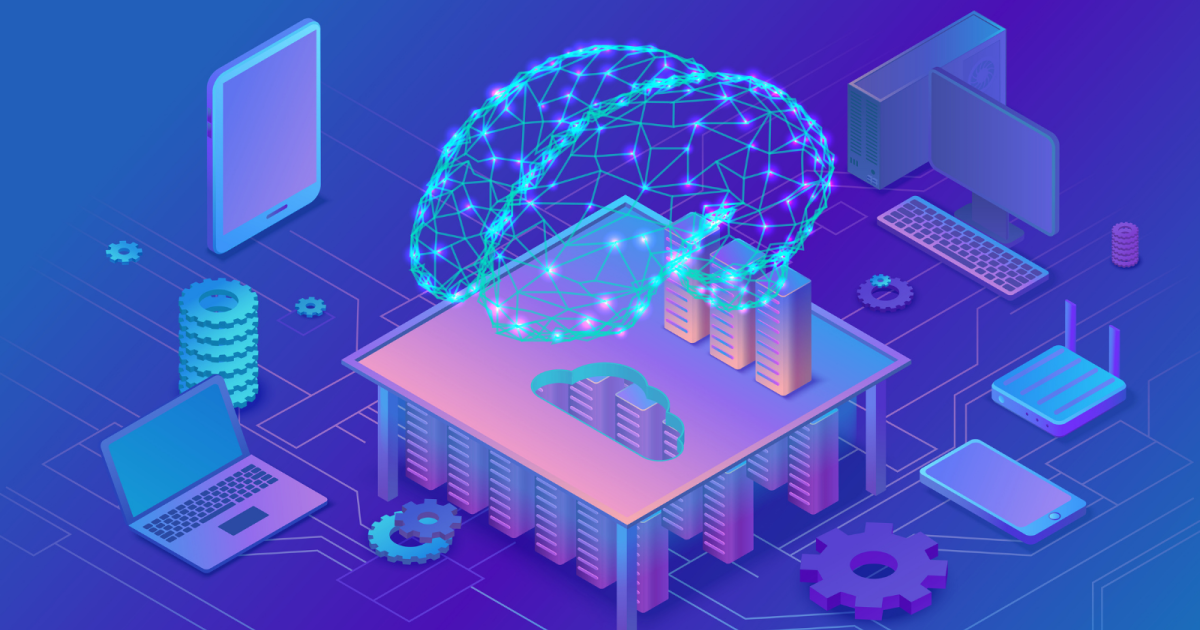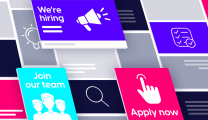What is Artificial Intelligence (AI)?
AI technology is based on machine learning, where vast amounts of data are fed into the system, helping it to replicate our brain’s decision-making power.
The technology can improve itself daily by continuously learning from user interactions, enabling it to accomplish tedious tasks more efficiently.
An AI-powered recruitment software can assist organizations in managing large volumes of resumes, screening, shortlisting candidates, and conducting initial interviews.
Benefits of Using AI in the Recruitment Industry
1. Streamlines Recruitment Process
AI can automate several administrative tasks that are typically time-consuming and labor-intensive for recruiters.
This includes managing large volumes of resumes, sourcing candidates, and conducting virtual interviews.
Automating these frees up recruiters to focus on other strategic tasks and helps them deliver results efficiently.
2. Improves Candidate Experience
An efficient recruitment process paired with human touch provides a great candidate experience.
With the help of AI-powered recruitment tools, recruiters can make the hiring process way more engaging, ultimately attracting a large pool of qualified candidates.
3. Provides Data-Driven Insights
With data analytical tools, recruiters can quickly eliminate guesswork and land the right candidates.
AI-powered recruiting apps can also provide insights that go beyond what humans can easily process, such as identifying key personality traits or attributes that lead to success in a particular role.

4. Bias-Free Recruitment
The intervention of human bias always implies a certain amount of threat to the quality of hires in an organization.
AI recruitment solutions can minimize this element by screening job applicants based on their qualifications and experience, eliminating subjectivity in the hiring process, and promoting diversity.
5. Sources New Talent Pools
AI-powered tools can help to analyze data from a wide range of sources, such as social media, job boards, and industry databases.
This helps recruiters identify potential candidates who might not have been discovered with traditional methods.
As a result, organizations end up expanding their search beyond the usual sources and finding candidates who might be a better fit.
Best Practices of Using AI in the Recruitment Process
1. Define Clear Objectives
Before implementing AI in recruitment, it is essential to clearly define objectives and decide what you expect out of the technology.
Point out specific areas you are willing to enhance with the help of automation. For example:
- Candidate sourcing
- Reducing response times
- Adjusting hiring budgets
- These will help to select the right AI recruiting software that aligns with your desired results.
2. Ensure Data Quality
The power of automation relies heavily on data quality.
Companies should ensure that the information they are dealing with is accurate and up-to-date. They should also cross-check the data sets upon which their AI tools are functioning as it largely impacts the quality of decisions taken.
Having access to authentic data helps the AI tools ensure that the algorithms are processing in a desired way and generating reliable results.
3. Eliminate Bias
Technology has its own set of unconscious biases that can majorly affect the course of recruitment in your organization.
To avoid any system bias, organizations should train their AI tools on diverse data and conduct regular audits to ensure that they are not discriminating based on factors such as race, gender, age, or ethnicity.
4. Use Natural Language Processing (NLP)
Natural Language Processing (NLP) is a technology that enables artificial intelligence to transform textual data into a format that a computer can understand.
By using NLP, AI hiring solutions can interpret job descriptions and CVs and match them based on skills, experience, and education required for an opening.
5. Leverage Chatbots
Chatbots can help your hiring team automate the initial stages of the recruitment process.
They can be used to answer basic candidate questions, screen resumes, and schedule interviews efficiently and effectively.
It can not only save some precious time for recruiters but also reduce the manual workload significantly.
6. Personalize Candidate Experience
AI-driven tools can be used to personalize the candidate experience your organization offers.
Using candidate data, such as work history, education, skills, and background, AI can provide job recommendations customized according to the provided information.

It can even suggest job titles that the candidate may be interested in.
7. Monitor and Evaluate
To ensure that the technology is effective, organizations should monitor and evaluate the performance of their AI algorithms.
This will help identify any aspects needing improvement and ensure that the AI meets the recruitment objectives.
4 Potential Drawbacks of Using AI in Recruitment
1. AI Can’t Replace Humans
While AI tools can significantly reduce the workload for recruiters, they can never fully replace human efforts.
The power of intuition and personal interaction plays a massive role in the hiring process, which also evaluates a candidate’s personality, communication skills, and cultural fit.
2. Chatbots Struggle with Complexity
Chatbots can be a helpful tool for automating repetitive tasks such as scheduling interviews and answering basic questions, but they hit a roadblock in complex situations.
A bot will not respond to questions or nuances of human communication that go beyond the information it is trained on.
This is where human intervention is still required.
3. Potential Candidates May Be Overlooked
AI can be a powerful tool for sourcing and screening candidates, but it’s important to keep in mind that it may not identify all of the qualities and characteristics that a hiring manager would typically look for in a candidate.
This makes using AI in conjunction with traditional recruiting methods crucial, as a recruitment team cannot solely depend on a software to make all the decisions.
4. Data Privacy and Security Concerns
An AI tool is trained upon vast amounts of data, making it crucial for hiring managers to keep it secure.
This means ensuring that the organization should keep sensitive candidate data private and does not use it for discriminatory purposes.
It’s also important to be transparent with candidates and give them some degree of control over their personal information.












Replies to This Discussion